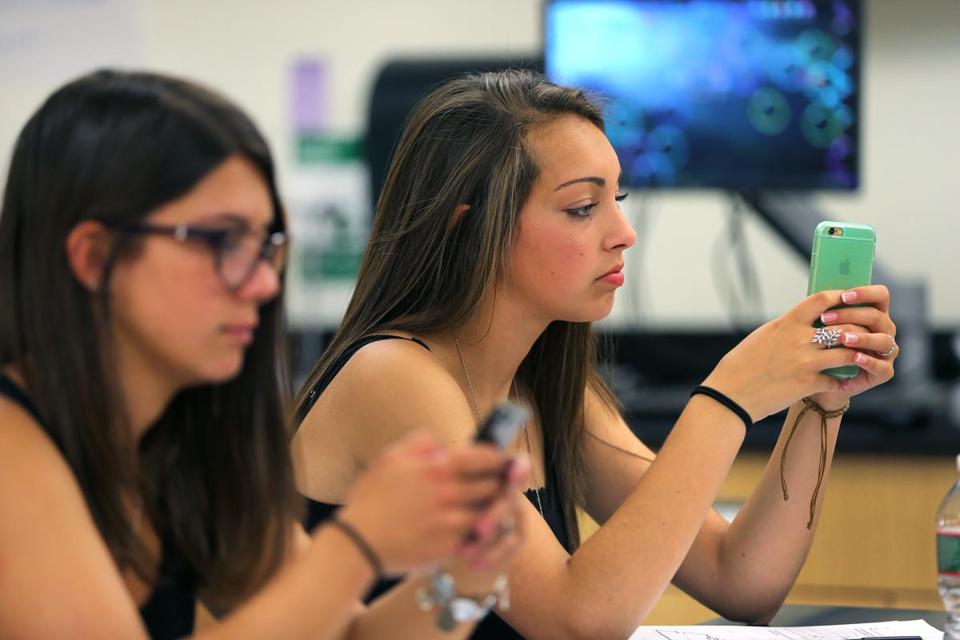What do you do when you teach a classroom of students who are more concerned with the number of likes they get on a selfie than the number of percentage points they earn on a math test? Okay, maybe I am slightly over-exaggerating but this is how it sometimes feels when you are in a classroom full of students anywhere over the age of twelve. Of course there is the very simple answer to this: don’t allow cell phones in the classroom. But let’s step away from the practical and actually consider the pedagogical implications of teaching a generation of students who learned how to navigate an iPad before they learned how to play tee-ball.
I am a millennial and went to school during a time when most of my teachers were baby boomers. Without painting a utopian educational landscape that suggests schooling in the 90s and early 2000s was bliss, there did seem to be a greater connection between the curriculum and the student. A decade or two ago, not everything students learned was relevant, but it did seem a whole lot more relatable and practical. Although it is not specifically indicated in the curriculum, we spend time in Geography teaching kids how to read maps. Yes, I will not hesitate to roast a friend who doesn’t know which direction north or west is when driving to a destination, but who the hell is pulling out a physical map these days? Breaking news alert: we got this thing called GPS now. Some of the ways we teach Generation Z simply do not make sense.
Beyond that, the socio-emotional incentives social media and technology provide students with rival particular rewards we still traditionally (try to) instill through schooling. Why hone your craft in an athletic skill when you could turn on your PS4 and create an avatar so realistic that you would rather work your thumb dexterity than learn how to perfect a dribble drive move that works all the time? Some kids would rather win 8 straight titles in 2K than make an actual, real-life basketball team.
The hyperbolic analogy merely suggests that we must re-think the ways we engage students in the learning process. We must re-conceptualize strategies that will hook students for as long as their favorite vines do. To folk born in the 80s and before, the thought sounds sad but it is a truth we must embrace instead of fight against.
Some of the most successful, creative, and influential “millennials” were born out of an educational system that connected the “current” past to the unforeseeable present. And many of these most-known figures didn’t graduate from universities. Have we even stopped to consider what this reality is teaching students? Ironically, who we adults think of when we consider the trail-blazers that are pushing our societal boundaries are people like Mark Zuckerberg. But, many of these kids don’t even know who Mark Zuckerberg is! Their role models are gamers, insta-celebrities, and self-made entrepreneurs. Instead of holding on to the past as a way to prepare students for a successful future, we have to look for ways to connect with youngsters on a level that seamlessly bridges our new generational gap. Maybe, just maybe, we have to do it for the likes.
[share title=”Share this Post” facebook=”true” twitter=”true” google_plus=”true”]

